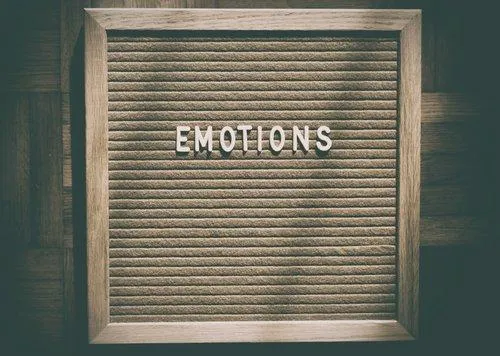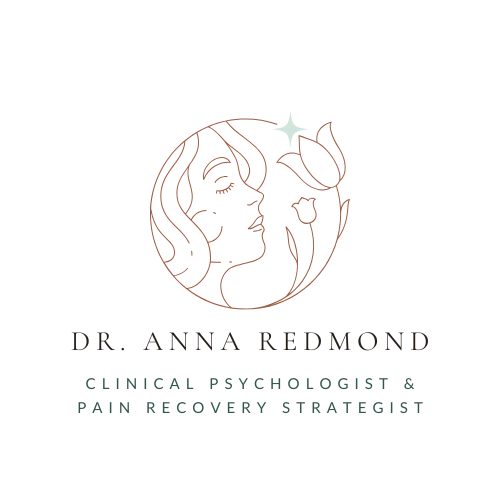Welcome to the Education Hub
Science-based tools, insights, and resources to help you understand your pain and retrain your body’s protective systems with confidence.
This is your space to learn, explore, and build confidence in understanding chronic pain.
Here you’ll find science-backed insights, podcast interviews, and expert guides designed to help you retrain your brain, calm your body, and live more fully, one informed step at a time.
Listen and Learn
Chronic Pain: It's Not In Your Head
Have you ever been told that your pain is all in your head? It's more complicated than that when we consider how it affects our complete body and mind. We talked all about this on the On Call Empath Podcast.
Chat with a Pain Psychologist
I sat down with physical therapist, Dr. Alissa Wolfe, for a chat about why chronic pain education is so important but so hard to find in the health care system.
Pain and the Body's Threat Detection System
Dr. Redmond brings much needed clarity on the brain science behind pain, the factors that contribute to whether or not pain becomes chronic, and how the nervous system is intimately involved.
How To Stop Chronic Pain
Kim Gross and guest Dr. Anna Redmond discuss chronic pain management, specifically catering to high-achieving women. Dr. Redmond emphasizes the connection between chronic pain and perfectionistic behaviors, explaining how focusing on values rather than pain can significantly improve one's quality of life.
Where Does Pain Come From
Dr. Derrick Hines sits with Chronic Pain Educator, Dr. Anna Redmond to discuss the underlying reason for pain. Tune in to learn what types of pain exist, how your mind affects the way you feel pain, how to stop pain before it becomes chronic, and more!

How to Deal With Chronic Pain
In this episode of A Healthy Push podcast, Shannon Jackson chats with Dr. Anna Redmond, a chronic pain educator and trained pain psychologist. We sat down for a conversation on the relationship between chronic pain and anxiety.
Explore the Blog
Science-backed lessons, practical strategies, and real-world stories to help you understand and retrain pain.

The return of the repressed.
Pain and our emotions are more connected than we think.
When you step on a nail, it FEELS like the pain is in your foot, but it’s really in your brain.
The scientific community agrees that repressing emotions has a negative impact on our health as a whole, weakening the immune system, resulting in physical symptoms like chronic pain, or resulting in mental illness like depression. We even know that repressing emotions strong emotions can cause an inflammatory response in the body.
Dealing with emotions is an important part of managing chronic pain or any other chronic illness.
For one, we know that emotions such as anxiety, depression, and anger can amplify someone’s pain experience. For another, we know that intense emotions or stress can result in physical symptoms in the body. This isn’t new, and we’ve discussed it here before.
When we experience stress, our sympathetic nervous system turns on, and immediately the body responds physically with an increased heart rate, tense muscles, clammy skin, cold extremities, and rapid breathing. When we don’t move out of this state, the nervous system recruits other protective systems like the immune system or the digestive system. When we stay in fight or flight mode, chronic pain can be the result.
Suppressing emotions regularly or for many years can result in our nervous system remaining in fight or flight mode.
Try this:
- Express your emotions through journaling each day, enhancing the relationship between your sympathetic and parasympathetic nervous systems, providing a better balance, and strengthening your mental and physical health.
- If it feels relevant for you, you could begin a daily practice writing about painful memories as a way of releasing them from your body. If this is too distressing to perform or think about, it may be best done in the company or with the support of a mental health provider.
When emotions are released, we are changing neural pathways in our brain.
If you’ve found that your pain has worsened over the years, that it never leaves you, that it has spread to more areas of your body, that new doctors + new treatments has not resulted in improvement, or that it has become more sensitive over time…'
… consider how your body may also be expressing new or longstanding emotions in a physical way.
So, maybe, your pain is in your back, but your back is ALSO a storage area for emotions that you are repressing, having difficulty dealing with, or hiding from yourself for protection.
Remember, your pain is real REGARDLESS of the root cause or any factors (such as emotions) that may be maintaining it. Your pain is multidimensional and as unique as you are.
Education provides the power to take the next step in managing your pain. You want to do the things you enjoy (or even basic daily activities) without flaring up your pain. For a limited time, you can grab my free video tutorial to get you started:
3 Simple Steps to a Balanced Day... Without the Flare-Ups.
This free video tutorial is dedicated to helping women with pain begin to find confidence to return to the moments, activities, and people they love the most.
Thanks for following along! Stay tuned for more digestible bits of chronic pain education here and on Instagram. Thank you for being part of this community!
Want to Go Deeper?
Start with My Top Pain Recovery Reads.
These are the science-based, mind-body reads I most often recommend to my clients.
Each one offers a powerful perspective on the brain, the body, and the journey back to safety and vitality.
Free education on my Instagram Account
Don't forget to send me a DM, introduce yourself, and tell me what your biggest pain struggle is right now!
© 2024 | Anna Redmond, LLC | drannaredmond.com
